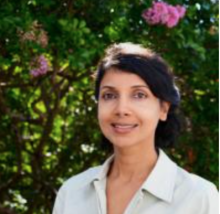
Nomi Dave
Project
"What Good is Music?"Project Summary: As a Mellon Humanities Fellow, my project explores the interaction between music and human rights, from a theoretical and practical perspective. In recent years, practitioners and scholars have increasingly looked beyond legal understandings of human rights and humanitarian law to embrace a more humanistic approach. Through initiatives such as film festivals, storytelling, and collective singing groups, human rights actors are more than ever engaged with art as a means to testify against abuses, and to protect and promote rights. At the same time, within scholarship there is a steadily growing body of work on human rights and the humanities. Scholars have explored questions of personhood, ethics, voice, violence and subjectivity that are central to the project of articulating universal rights. This work predominantly explores the relationship between literature and human rights, considering rights’ documents as literary texts, or examining historical narratives, novels and other texts as forms of jurisprudence; and has thus far focused largely on discourse and principles, rather than on rights practice.
My project extends this inquiry by considering how music is imagined in the global rights regime, and how it interacts with the everyday practice of rights’ work. Moving beyond prevalent assumptions of music as inherently good and doing good in the world, I examine music’s possibilities but also its limits. How is music apprehended and applied vis-à-vis rights? What expectations are placed on both? How does music serve as a form in which a more just and equitable world can be conceived, and how does it not? I explore these questions through the lens of the imagined: the ways in which the project of universal rights rests on the need to imagine; and the resulting implications for music and art, as well as for the populations intended to be benefited. I apply these ideas to examples of musical human rights initiatives, based on ethnographic study in the Republic of Guinea and the US, to consider their efficacy, outcomes and underlying assumptions. Lastly, I aim to propose ways in which music and rights work can be made more effective and locally responsive.
Project Update/Status: During Spring 2016, I began work on a chapter on music, rights and the imagination, as part of a larger book project on music and human rights. I also conducted ethnographic research in Guinea during the summer of 2016, including interviews with musicians and NGO workers. I have also very much enjoyed conversations with the other Fellows in my cohort and the opportunity to share ideas and work.

Nomi Dave
Randall 126
Project
"Premodern Encounters"6-part colloquium series during 2022-23 year to foster a multidisciplinary, highly focused series of engagements between premodernist scholars working on similar subjects across disparate fields, languages, and cultures.
Biography
Nomi Dave is an interdisciplinary researcher working across music and sound studies, law, and anthropology. Her work explores the limits and possibilities of voice, music, sound, and silence in political contexts. She is the author of The Revolution’s Echoes: Music, Politics, and Pleasure in Guinea (2019, University of Chicago Press), which considers how authoritarianism becomes meaningful for ordinary people. Through a study of voice and quietness in Guinea, the book explores why musicians and their audiences might choose to support an authoritarian state. The book was awarded the Ruth Stone Prize in 2020 for most distinguished first monograph in ethnomusicology.
Nomi is directing a new initiative, the Sound Justice Lab, which explores everyday understandings of the law, through audio, text, and film. In collaboration with community advocates, students, and faculty, she is developing a project on the role of the voice in gender justice, through a series of creative works, applied research, and teaching. She is also co-writing and co-producing a short film on women’s voices and gender activism in Guinea. The film emerges from a collaborative research project with a feminist collective in Guinea.
Nomi received her PhD from Oxford University and previously taught at Duke University, in the departments of Cultural Anthropology and Music. Her research has been funded by the National Endowment for the Humanities and the Mellon foundation. She is a former lawyer and has worked in the fields of women’s rights, refugee rights, and immigration law, in Guinea and the US.
